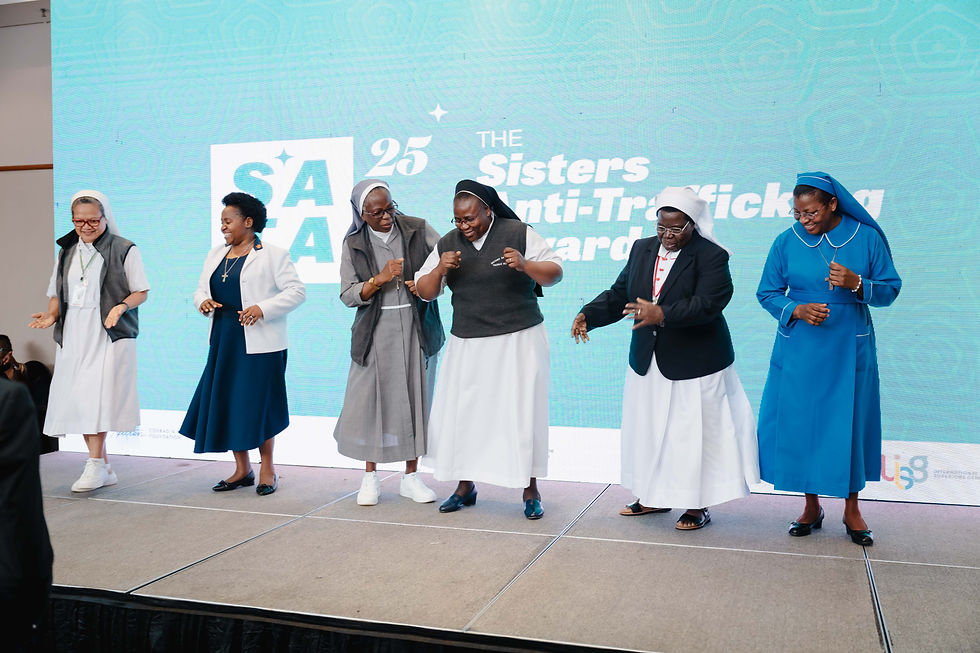Arise expands into Nigeria!
- Arise

- Jul 6, 2021
- 2 min read
Our work to prevent human trafficking is always complex, but the Nigerian context is especially challenging. Head of Programmes, Jess Templeman, announces Arise’s launch in Nigeria, outlining threats and opportunities on the path ahead.
Nigeria, the largest economy in Africa, is heaving with opportunity. It accounts for about half of West Africa’s population with approximately 202 million people and one of the most sizeable youth populations in the world. With an abundance of natural resources, it is Africa’s biggest oil exporter and has the largest natural gas reserves on the continent (source).
While Nigeria remains a country rich in resources and potential, it is also suffering. Among other troubling realities, Nigeria is a source country for human trafficking globally. In 2017, the IOM estimated that 80% of Nigerians arriving in Italy will be sexually exploited. In 2019 alone, Nigerians were found to be exploited in 36 countries in Africa, Europe and the Middle East. Over 48% of all identified trafficking victims in France in 2019 were of Nigerian origin. Nigerians were the most exploited foreign nationality in the EU in 2019, with around 1500 confirmed victims registered.
Nigeria has seen some marked socio-economic progress in recent years. However, much of this has been unravelled by COVID-19. Food insecurity is an increasing problem. Over 9 million people suffered food crisis between March and May 2021 - a figure that is expected to rise to 12.4 million by the end of August. Despite the country’s multi-ethnic and culturally diverse fabric, terrorism, insurgency and political instability are rife. Over 2.9 million people in Nigeria are currently living as IDPs and a third of the workforce are currently unemployed.
While Arise’s work to prevent human trafficking is always complex, touching on the big questions of government, poverty and inequality, the Nigerian context is especially challenging. Unpicking even one strand of the issue reveals a Gordian knot of complicated push and pull factors. Trying to raise the level of women’s education, for example, unearths issues of Boko Haram, societal expectations of women and girls, poverty and food insecurity, the need for children to earn their keep, and a myriad of other issues.
Arise is grateful to be able to expand its reach to support the frontline groups and networks working tirelessly from this context. We opened our office in Nigeria at the beginning of 2021, and have been working closely with the frontline to listen to their needs, and design a programme that builds on their strengths and scales their effectiveness. Edo State and Lagos are our initial focus, where we will be working to build capacity among existing anti-slavery networks to prevent human trafficking sustainably. Our early work prioritises network building, training and direct programmatic support.
To kick off our work, we travelled to Lagos in May to convene with some of the key actors in the frontline network COSUDOW, based in and around Benin City. There, we met many women who are devoting their lives to different aspects of anti-slavery and -trafficking work, from enabling girls to access education, to providing skills training and accompaniment to those who have already suffered. Arise is excited to continue working with this network and the inspiring groups and individuals within it over the coming years.









Comments